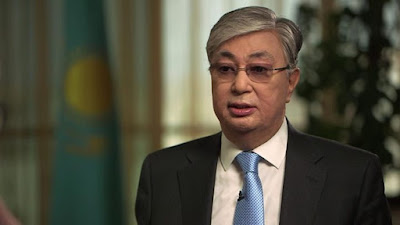01 July 2019
One who distributes
After a couple of days of overanalysing (and grousing about) the Democrats, I felt it was probably long past due for some unequivocally good and humanity-affirming news. This past week, the new President of Kazakhstan, Mr Qasım-Jomart Kemeluly Toqaev, forgave a little over a billion US dollars in personal debt of three million Kazakhs from the poorer part of the socioœconomic ladder ‘who find themselves in very difficult living circumstances’, as part of the first major policy package to emerge from his administration. At the same time, he ended the bank bailout policies of the preceding government, tightened regulations around high-interest small-volume lending, and drew down from Kazakhstan’s cash reserves to honour public-sector salaries and pensions. This is wonderful news for the nation of Kazakhstan.
To the point: periodic debt forgiveness is just good, traditional Biblical œconomics, or rather Jubilee œconomics as described in the Hebrew Scriptures (i.e. Leviticus 25). The forgiveness of debts – and in particular, the debts of the poor – was one of the central Gospel commandments of our Lord Jesus Christ as seen from the parables (i.e., St Matthew 18) and indeed from the Lord’s Prayer (i.e. St Luke 11). Moreover, it’s good Islâmic œconomics. The hadith Sahîh al-Bukhârî extols those who forgive the debts of the poor, and assures them of God’s favour and mercy. (As a note of interest, one of Mr Toqaev’s given names, Qasım, rather aptly comes from an Arabic name Qâsim قاسم meaning ‘one who distributes’.) Kazakhstan’s neighbor and fellow Soviet republic of long standing, the Russian Federation, has a policy of forgiving foreign debts as a way of building and maintaining diplomatic relationships with other countries. We may speculate on the reasons Mr Toqaev did this – and it is a possibility that his motives had nothing to do with the fear or the love of God – but truly much of his own debt will be forgiven in the age to come, for the sake of what he has done for his country’s poor.
Labels:
Alash Orda,
Holmgård and Beyond,
language,
lefty stuff,
Levant,
œconomics,
politics,
theology
Subscribe to:
Post Comments (Atom)













No comments:
Post a Comment